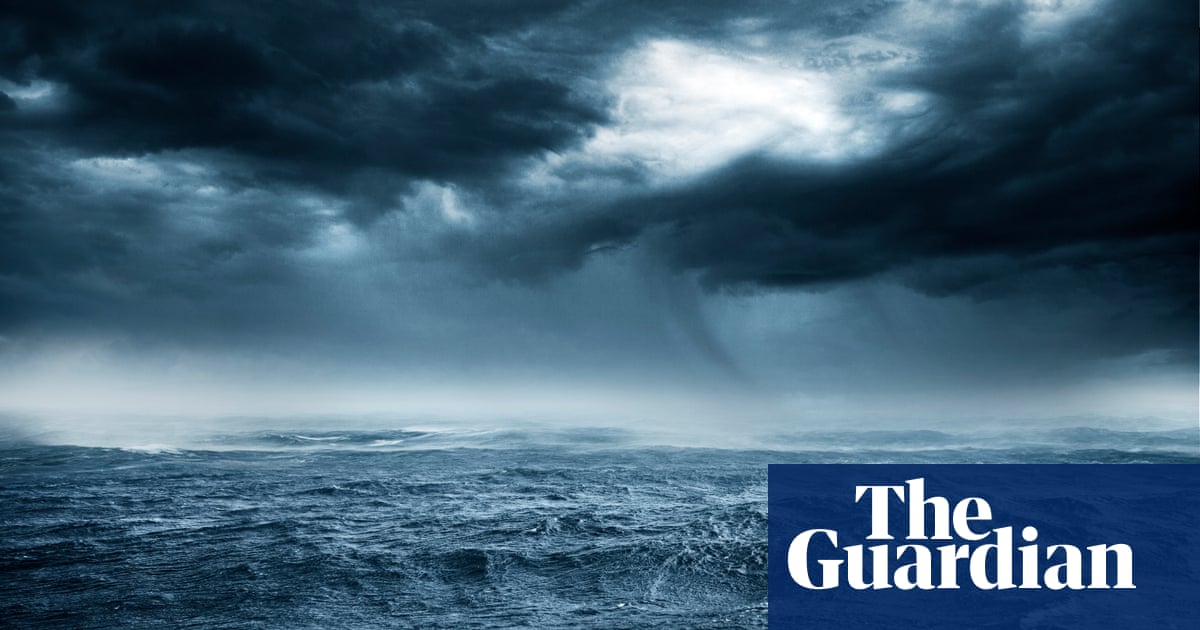The sea takes many forms in fiction. It was an adventure playground in Robert Louis Stevenson’s Treasure Island and a rowdy neighbour in Daphne du Maurier’s Jamaica Inn. It played the wine-dark seducer in Homer’s Odyssey and the snot-green tormentor in Joyce’s Ulysses. But while its colour can change and its humour may vary, its fictional properties remain reassuringly stable. The sea is our unconscious, a repository of memory, the beginning and end of all things. It’s what Jules Verne described as the “Living Infinite”.
In Madeleine Thien’s rapturous fourth novel, The Book of Records, “the Sea” is the name given to a gargantuan migrant compound, sprawled on the shoreline a decade or two in the future. Lina and her ailing father, Wui Shin, occupy an apartment on the labyrinthine 12th floor, from where they can watch the refugee boats pull in and depart. The pair have fled the flooded Pearl River Delta, leaving behind Lina’s mother, brother and aunt but carrying three volumes from an epic biographical series entitled The Great Lives of Voyagers. These tattered instalments cover the respective histories of the German-Jewish philosopher Hannah Arendt, the Chinese poet Du Fu and the Portuguese-Jewish scholar Baruch Spinoza. They provide both a link to the past and a sextant to navigate by. The world exists in endless flux, Lina is told, and yet here in the Sea nothing ever goes missing. Its chambers fill and empty like locks on a canal. Different portions of the compound appear to correspond with different decades. “The buildings of the Sea are made of time,” Wui Shin explains.
Naturally this near-future migrant fable is also by extension a novel of ideas. It’s about the ways in which experience and knowledge are handed down or slip free, to the point where we inherit and inhabit the lives of those who have gone before. Wui Shin once worked as a “cyberspace engineer” for a state-controlled tech firm, restricting access to the Chinese internet. His daughter’s story, though, plays out as an unfettered open inquiry, cross-referencing the laws of physics with the writings of Kafka, Proust and Italo Calvino. Thien – who was born in Canada to Chinese parents – is fascinated by the relationship of memory to history and by the cross-pollination of separate cultures and writers. Intriguingly, her 2016 Booker-shortlisted novel Do Not Say We Have Nothing contains a close cousin of Lina’s Great Lives series: the fragment from a book of historical records which has been copied by hand and smuggled out of China. The Sea recycles its wares, just as novelists do. Each standalone story is like a beaker dipped and drawn from a wider body of work.
Lina will go on to spend many years in the Sea, but as the book begins, the girl has no sooner settled into her apartment than the doors slide open to reveal her neighbours. The refugees gather around the new arrival like Dorothy’s companions in The Wizard of Oz. They breezily introduce themselves as Jupiter, Bento and Blucher, but they are also the avatars of Du Fu, Spinoza and Arendt. It is through their stories that we learn how Spinoza was labelled a heretic in 17th-century Amsterdam and Arendt went to ground in Nazi-occupied France. “You do know a lot about Du Fu,” Lina tells Jupiter at one point. “What am I,” Jupiter replies, “other than the things I know?”
The 12th floor of the Sea is a rarefied realm. Conversations constantly circle back to the big subjects: history and language; freedom and identity. And yet The Book of Records offers more than an intellectual talking shop. Its cramped apartment is the springboard from which the story glides out through various vibrant subplots, each furnished with a cast of vivid bit-players, some of whom (the blond visa clerk with the runny nose; the apprentice lens grinder with the bandaged hand) are described and dispensed with in a deft line or two. Lina’s three migrants are essentially ghosts themselves, passing through history in the blink of an eye. But their respective quests are made to feel urgent and ongoing, and we thrill to their adventures as though they are happening in real time. Arendt and her husband eventually cross the Pyrenees on foot, stumbling on the narrow mountain path, watching out for border guards. They dream of a safe Atlantic passage and a fresh start in New York, “a place in the future where the past can meet”.
The Book of Records is a rich and beautiful novel. It’s serious but playful; a study of limbo and stasis that nonetheless speaks of great movement and change. If this turbulent, mercurial tale has an anchor, it is its belief that “in order to extend life and preserve civilisation, we are obliged to rescue one another”. Thien explains in the acknowledgments that she has lifted this quote from The Book of Mountains and Rivers, a 2012 essay collection by the Chinese writer Yu Qiuyu. She hands it on from Arendt to Blucher to Lina in the Sea, as though it’s a baton or a lifeline that connects all the world’s great voyagers.
after newsletter promotion
